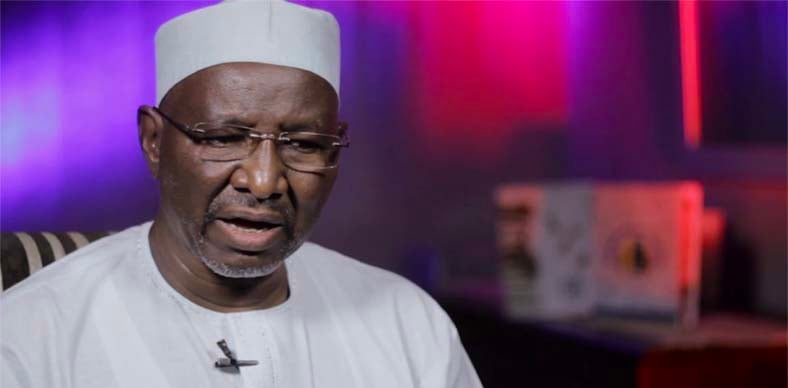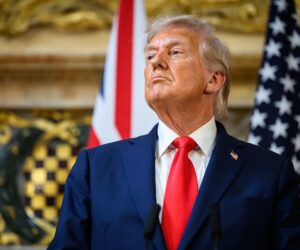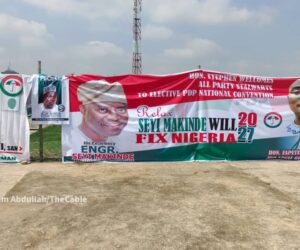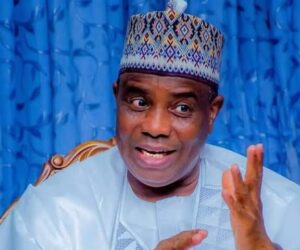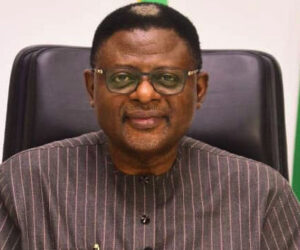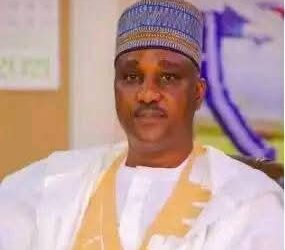A former federal lawmaker and political activist, Usman Bugaje, has dismissed claims by former President Olusegun Obasanjo that he never attempted to secure a third term in office during his administration. Bugaje insisted that the events of that period clearly showed Obasanjo tried to extend his stay in power beyond the constitutional limit of two terms.
Obasanjo, who governed Nigeria between 1999 and 2007, had recently said at a public event that he never sought to prolong his time in office. He argued that no one, alive or dead, could truthfully claim he solicited support for a third term. The former president made the statement in Accra, Ghana, during the Democracy Dialogue organised by the Goodluck Jonathan Foundation.
But Bugaje, reacting to Obasanjo’s remarks, described the denial as false and misleading. He said Nigerians witnessed the political drama surrounding the controversial third-term agenda, and many lawmakers, including himself, were directly involved in fighting against it at the National Assembly. According to him, the records of the time remain available for anyone who cares to check.
Bugaje recalled that around 2005 and 2006, the Nigerian political scene was dominated by discussions on constitutional amendments. At the centre of those amendments was a proposal to alter Section 137 of the 1999 Constitution, which limited presidents to two terms of four years each. He explained that the proposal was widely believed to have been sponsored to allow Obasanjo to run again in 2007.
Read Also: Fubara pledges to abide by agreement after meeting Tinubu
He said this was not speculation, but a clear provision in the constitutional amendment bill presented to the National Assembly. He further noted that civil society groups, opposition leaders, and even some members of the ruling party mobilised strongly against the idea, which eventually collapsed in the Senate after a heated debate in May 2006.
Bugaje stressed that members of the National Assembly were not fooled by the tactics used to push the plan. He claimed that huge sums were allegedly offered to lawmakers to secure their votes, but a majority rejected the proposal in the interest of democracy. He said many of them stood their ground because they knew Nigeria was just returning to democracy after years of military rule, and allowing one man to stay in power indefinitely would have destroyed the system.
The alleged third-term bid also sparked outrage across the country. Several protests were staged, newspaper editorials condemned it, and international observers expressed concern over Nigeria’s future. Bugaje said it was one of the most divisive debates in Nigeria’s political history, and for Obasanjo to now deny it ever happened was unfair to the memories of those who fought against it. He asked whether Nigerians should now believe that lawmakers and activists who spoke openly about inducements at that time were lying.
He suggested that Obasanjo’s recent denial might be an attempt to protect his legacy. Bugaje argued that history had already recorded Obasanjo’s contributions to Nigeria, both positive and negative, and trying to erase the third term saga would not work. In his words, nobody is denying that Obasanjo did some positive things for the country, but the third-term agenda was one of the low points of his presidency. Instead of denying it, Bugaje said it would have been more honourable for Obasanjo to accept it as part of history and perhaps explain his own side of the story.
Bugaje added that the lessons from the failed third-term bid remain relevant today, especially for leaders who may be tempted to manipulate constitutions for personal gain. He said Nigerians must remain vigilant to ensure that no one tampers with the democratic system again. Constitutions, he explained, are not written for one man but to protect the rights of millions of citizens, and anyone who tries to change them for selfish reasons must be resisted.
Following Obasanjo’s denial and Bugaje’s response, Nigerians have continued to debate the matter both online and in political circles. While some believe Obasanjo’s claim that he never sought a third term, others side with Bugaje, insisting that the evidence from that period cannot simply be dismissed. Political analysts say the renewed controversy shows how sensitive the issue remains in Nigeria’s democratic journey. They argue that it is important for leaders to speak truthfully about past events so that future generations can learn from them.

